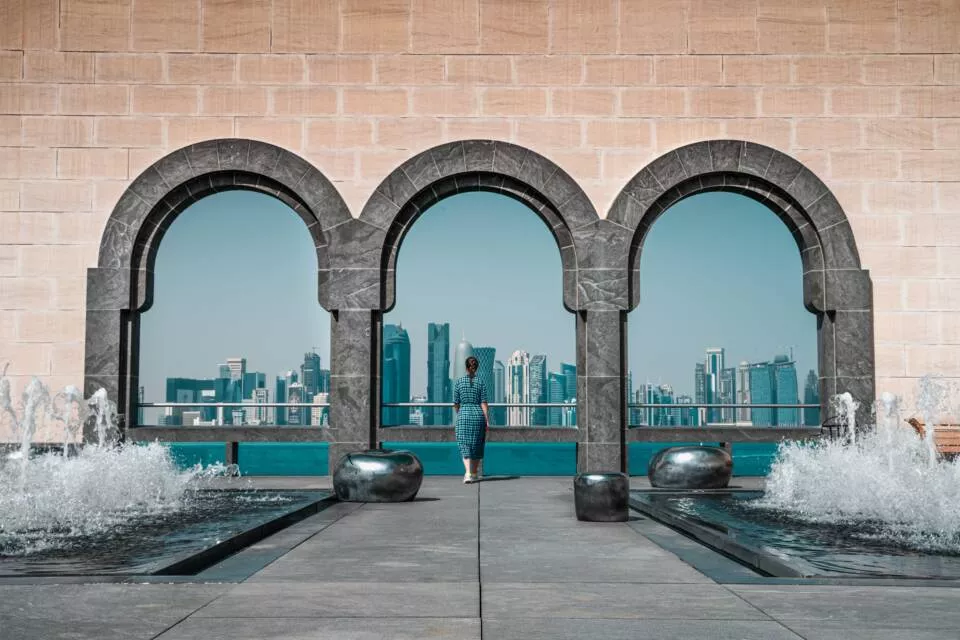Vassilis K. Fouskas, University of East London
During the temporary ceasefire negotiated between Israel and Hamas with the mediation of the Qatar government, 81 hostages have been released in return for the freeing of 180 Palestinians held in Israeli custody. Hundreds of lorry loads of aid have been allowed into the war zone and, just as the deadline for the end of the ceasefire was due to expire, it was announced that it has been extended for two days.
This represents a major success for Qatari mediators, with tangible and very visible results. Israeli and Palestinian families have been reunited and the desperate plight of Palestinians trapped in Gaza has been eased by the arrival of supplies of fuel, food and medicines – at least for now. The hope is that this situation can continue.
Qatar’s role in conflict mediation goes back many years. As a third-party mediator, Qatar has been exercising such diplomatic abilities since the 1990s and it has become an important aspect of its foreign policy.
Qatar emerged as a centre for conflict resolution in the late 2000s and a succession of deals have been brokered there since. It hosted the talks between the US and the Taliban, which resulted in the US withdrawing from Afghanistan in 2021. But before that, the signing of peace deals in Lebanon (2008), Yemen (2010), Darfur (2011) and Gaza (2012) contributed significantly to Qatar’s rising reputation as a peace broker.
The last deal on this list, in which Qatar’s emir, Hamad bin Khalifah Al Thani, played an important role as the only head of state to have visited Gaza since Hamas took over in 2007, established the small but important Gulf kingdom as a possibly key player in peace talks in the current conflict.
In 2022, al-Thani declared at the 77th UN general assembly that “mediation in the peaceful settlement of disputes” was at the centre of Qatar’s foreign policy to “solidify a reputation as an internationally reliable partner”.
Qatar is not a completely neutral party in the latest conflict. Hamas has a political office in the Qatari capital, Doha – which it has said will remain open, despite the October 7 attacks. And the Qatari government has given billions of dollars in aid to Hamas in Gaza over the past decade.
So what is it about Qatar that makes it such an effective broker of peace deals?
All-round integration
First, it has no history as a colonial power, so it comes with none of the baggage that inevitably accompanies peacemaking efforts by, say, Britain, France or the US. And, as a small Gulf state that doesn’t publicly align itself intimately with Washington, Moscow or Beijing, its mediation efforts are less likely to draw “great power” suspicion or criticism.
But – perhaps more importantly – Qatar’s position as regional mediator is a byproduct of its wealth management, investment capacity and its extensive and complex business connections, including personal connections in the Middle East, North Africa and particularly to the US.
The US is Qatar’s largest foreign direct investor. US exports to Qatar increased by more than 42% between 2021 and 2022, totalling US$3.7 billion (£2.9 billion) in 2019.
Neoliberal globalisation advocated for open markets, global distribution of production and deregulated financial markets. Qatar has wholeheartedly embraced this in its transition to a multi-faceted economy, no longer wholly dependent on revenue from hydrocarbon production.
It has been a success story. In per capita income, Qatar is now one of the top ten richest countries in the world and the wealthiest in the Arab world, with a per capita GDP of US$88,046 compared to the US at US$75,269 and the UK at US$45,485.
Significantly, given the conflict in Ukraine which has highlighted the need for European countries to diversify their energy supplies, Qatar is the second largest exporter of liquefied natural gas (LNG) in the world, with some 85% of its export earnings coming from hydrocarbons. Investing the resulting trade surplus in America government debt has led to mutual interdependency between its economy and that of the US.
The more the Qatari economy is intertwined with global supply chains, the more alert its diplomacy has become in providing solutions to thorny – especially regional – conflicts.
It should be noted that Qatar’s regional relations have hit road blocks along the way. Between 2017 and 2021, Saudi Arabia, UAE and Egypt – among other countries in the region – cut off diplomatic relations with Qatar, accusing the country of supporting “Iranian-backed” terrorist groups, something vociferously denied by Doha. Things have since thawed considerably, though, thanks to the mediation of Kuwait, and ties have been cautiously re-established.
It serves Qatar’s regional and global economic interests to seek peace and cooperation, rather than conflict and war. This, apart from making Qatar stand out among many other regional powers, generates a powerful dynamic whose full potential has been on full display in the ongoing Hamas-Israel conflict.![]()
Vassilis K. Fouskas, Professor of International Politics & Economics, University of East London
This article is republished from The Conversation under a Creative Commons license. Read the original article.
Stay updated with all the insights.
Navigate news, 1 email day.
Subscribe to Qrius

